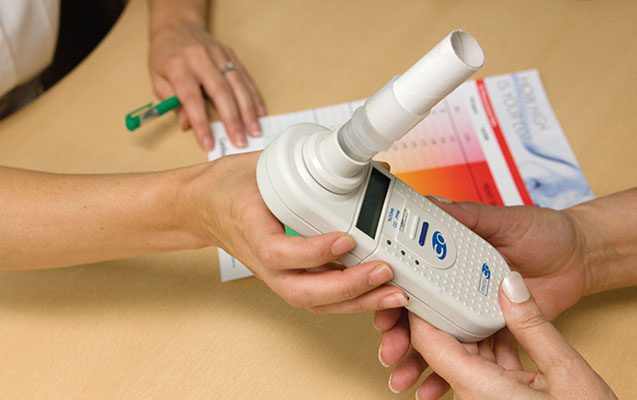Helicobacter pylori infection is considered one of the most common infections in the world, second only to tooth decay bacteria. This type of infection is often silent and difficult to detect, but it can lead to chronic stomach pain such as chronic gastritis or stomach ulcers, and even stomach cancer. Let’s explore the issues related to H. pylori through this article.
Essential Information About H. Pylori Bacteria
1. Understanding H. Pylori Bacteria
H. Pylori (Helicobacter Pylori) is a type of bacteria that lives and thrives in the human stomach.
So, how can H. Pylori survive in the stomach? In the acidic environment of the stomach, H. Pylori exists by secreting an enzyme called urease that helps neutralize the stomach acid.
Many people who discover they are infected with H. Pylori often worry about whether H. Pylori can cause cancer. In fact, H. Pylori can lead to chronic gastritis and is a primary cause of stomach ulcers, duodenal ulcers, and stomach cancer. According to research, about 1% of those infected with Helicobacter Pylori are at risk of developing cancer.

H. Pylori is a type of bacteria that lives and thrives in the human stomach.
2. How is H. Pylori Transmitted?
Is H. Pylori contagious? The answer is yes, this type of bacteria can easily spread from an infected person to a healthy person. Typically, it spreads through three main routes:
- Oral-oral transmission: This is the primary mode of transmission of H. Pylori, spreading through contact with saliva or digestive secretions of infected individuals. Generally, if someone in the family is infected with H. Pylori, the chance of others getting infected is very high.
- Fecal-oral transmission: The bacteria are excreted through feces and can spread to the community due to habits of consuming raw food, leading to potential infection with H. Pylori.
- Other routes: Infection may occur through shared medical equipment, such as gastroscopy, ENT examinations, dental tools, etc. Therefore, it is essential to sterilize medical equipment after each use for different individuals to prevent H. Pylori transmission.

Sharing toothbrushes makes it easy for H. Pylori to spread.
3. Who is at Risk of H. Pylori Infection?
Everyone is at risk of H. Pylori infection. Currently, it is estimated that about 50% of the world’s population is infected with H. Pylori. However, the infection rate also depends on various factors such as age, geographical area, lifestyle habits, and quality of life.
Children are also at high risk of infection because parents or family members with the bacteria may have habits such as kissing the child or tasting food before giving it to them.
Although the infection rate is quite high, many infected individuals show no symptoms or complications in the digestive tract.
4. How to Know if You are Infected with H. Pylori?
The symptoms of H. Pylori infection are often subtle and unclear. Typically, it causes pain in the upper abdomen, bloating, indigestion, and disturbances in bowel movements. In such cases, it is best to visit a hospital for accurate results.
The medical methods applied to detect H. Pylori include:
- Invasive methods: The patient undergoes gastroscopy to assess the condition of gastric and duodenal ulcers. During the procedure, the doctor takes a biopsy sample to conduct a rapid urease test, perform pathological tissue examination, or culture the bacteria.
- Non-invasive methods: This method allows patients to find out if they are infected with H. Pylori without needing to undergo gastroscopy, using three approaches:
- Breath test
- Fecal test for H. Pylori
- Blood test for H. Pylori antibodies (less commonly used).

Breath test to check for H. Pylori.
5. How is H. Pylori Treated?
- Treatment to eradicate H. Pylori is indicated for those infected in cases of gastric or duodenal ulcers, treated stomach cancer, iron deficiency anemia, or thrombocytopenia.
- Preventive treatment for stomach cancer is recommended for those infected with H. Pylori in situations such as having a family member with stomach cancer, gastric polyps, atrophic gastritis, prolonged use of non-steroidal anti-inflammatory drugs (NSAIDs), or for individuals wishing to eliminate H. Pylori.
The method of H. Pylori treatment involves a combination of antibiotics and a medication to reduce gastric acid secretion. The use of these medications may cause some side effects such as black stools, diarrhea, altered taste (metallic taste), black tongue, and alcohol intolerance (Antabuse effect).


















































